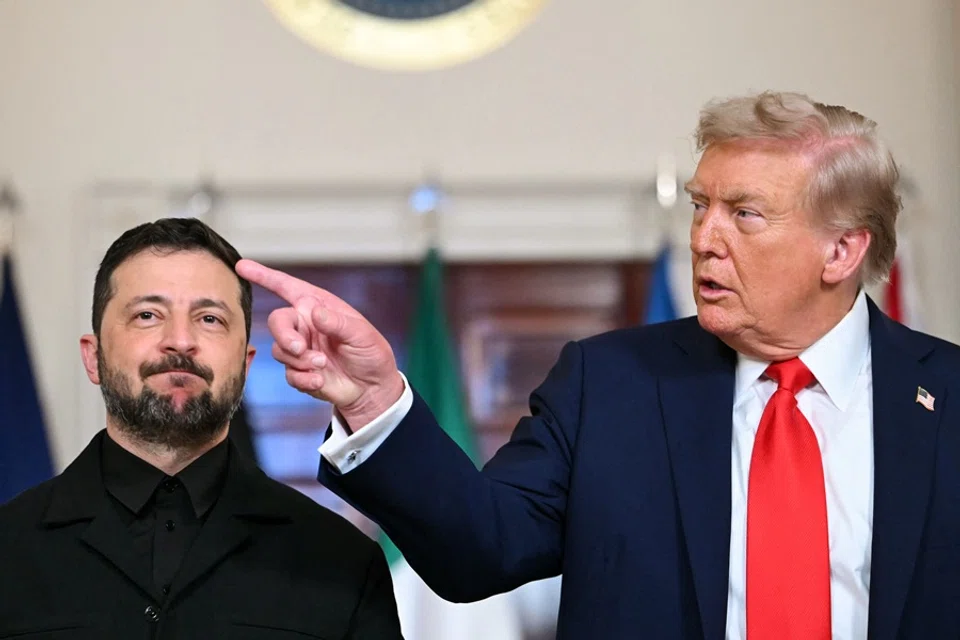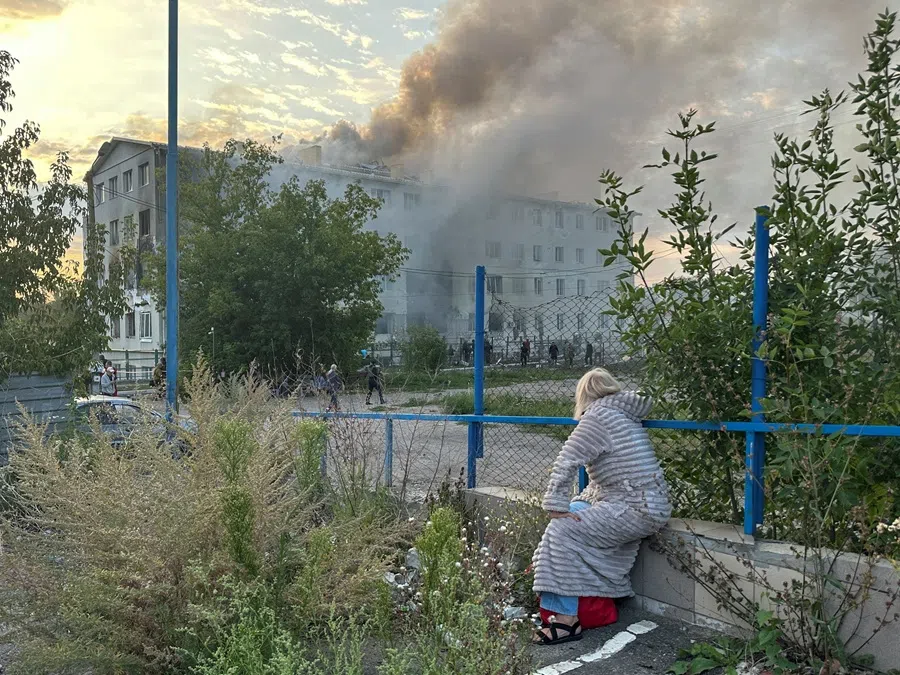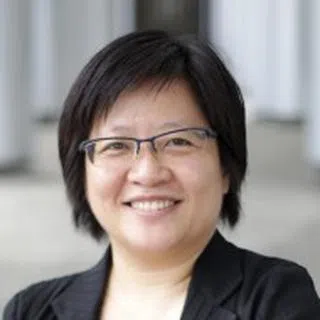Trump’s summits: Where power spoke louder than peace
Multiple talks for peace in Ukraine were held over the past week, with Trump firmly in the driving seat and European leaders looking largely ineffective. Lianhe Zaobao associate editor Han Yong Hong notes the impact of the talks on other countries, including China.

The highly anticipated US-Russia Alaska summit, US President Donald Trump’s White House meeting with Ukrainian President Volodymyr Zelenskyy, and the multilateral talks involving US, Ukrainian and European leaders all took place over the past week.
No agreements were reached, and more questions than answers remain, but amid the deadlock over the Ukraine war, the Trump-Putin summit — along with the unprecedented show of support as Europe’s top leaders gathered at the White House to back Zelenskyy — has cranked the dramatic tension to the maximum.
Showman Trump had each leader speak to the press one by one, portraying himself as the composed, commanding figure orchestrating it all. But what the global audience saw was a dominant Trump, a resigned Germany and France, and Western leaders, while collectively thanking Trump in a show of harmony, suppressing their discontent as undercurrents of tension simmered. The media was stunned and speechless, hit by waves of dejection.
US in charge, Europe cowed
On the day of the US-Ukraine-Europe talks, the White House resembled a live TV broadcast. After being previously told to leave the White House, Zelenskyy came across as more “subdued” this time, wearing a suit and saying “thank you” 11 times within five minutes.
German Chancellor Friedrich Merz emphasised to reporters that a ceasefire between Russia and Ukraine must come first before talks, while Italian Prime Minister Giorgia Meloni, seated beside him, rolled her eyes several times, seemingly concerned about displeasing Trump. When French President Emmanuel Macron proposed a four-way meeting, Trump blatantly ignored it, leaving Macron visibly displeased during the group photo, his left hand tucked into his pocket.
Implicitly, he [Trump] framed the Russia-Ukraine war as Europe’s problem, suggesting that Ukraine should seek security guarantees from Europe, with the US playing only a supporting role.

The eight European leaders were reportedly left waiting for 40 minutes during the talks because Trump stepped out to call Putin. In fact, they had been waiting since arriving at the White House, as Trump first met with Zelenskyy for a press conference and bilateral talks.
When asked if the US would deploy troops to Ukraine to provide NATO-style security guarantees, Trump replied that “people were waiting in another room” — Europeans eager to protect Ukraine — and said, “We’ll help them out with that.” Implicitly, he framed the Russia-Ukraine war as Europe’s problem, suggesting that Ukraine should seek security guarantees from Europe, with the US playing only a supporting role.
Macron and Merz likely came to the US hoping to swallow their pride in the interest of promoting peace — only to find the humiliation very real. As Trump showcased his version of “peace through strength”, Taiwanese commentator Lai Yueh-tchien lamented that Merz, Macron, NATO secretary-general Mark Rutte — who once called Trump “Daddy” — and the rest of what he dubbed the “Eight Fools of Europe” had come uninvited to the White House, gained nothing, and left empty-handed, while “Trump alone basked in glory.”
Media response
Observing the awkward situation in Europe, mainland China’s self-media outlet Niutanqin (牛弹琴) did not miss the chance to mock Europe’s diplomatic humiliation. Western media were even more callous, with the UK’s The Guardian sarcastically suggesting that European leaders resembled pigeons suffering from a “bird-brained affliction”, seeking help from the omnipotent Trump.
Of course, some commentators focused on the US-Russia summit on 15 August, perceiving it as the true turning point, marking Russia’s break from Western sanctions and a return to a tripolar world order dominated by the US, China and Russia, attaining international peace through great power negotiations.
The kind-hearted would hope for an early end to the war, so that lives are no longer devastated. The end of the war in Ukraine would also alleviate global inflationary pressures and be beneficial to economic development. However, looking at the trajectory of US-Russia-Ukraine talks, where is this “peace”?
If Russia can justify expanding its territory through war, this would be a disregard of international law and morality, discarding it like an unwanted shoe. Can such a result truly be called “peace”?
Ending the war
After more than three years of brutal war, Ukraine is already facing a severe shortage of troops. Russia has occupied one-fifth of Ukraine’s total territory, including the Crimean Peninsula annexed in 2014, and large parts of the industrial Donbas region in eastern Ukraine since the war began in 2022 (including the Luhansk and Donetsk regions).
Currently, the “territorial swap” plan that Trump and Putin might adopt requires Zelenskyy to relinquish the entire Donbas in exchange for small areas like Sumy and Kharkiv occupied by Russia, which would mean Ukraine would suffer a major loss, ceding land for peace.

Indeed, Russia’s annexation of Crimea was a direct result of Ukraine’s Euromaidan revolution, and many believe that the US was involved in the revolution. Coupled with NATO’s continuous eastward expansion over the years, this all led to Russia’s aggression against Ukraine. Even so, Ukraine, as a sovereign and independent nation, has inviolable sovereignty. If Russia can justify expanding its territory through war, this would be a disregard of international law and morality, discarding it like an unwanted shoe. Can such a result truly be called “peace”?
For countries beyond the US, China and Russia, the most pressing lesson is clear: the world is entering an era of unabashed power politics, where morality and principles can be bargained away.
Moreover, this so-called “peace” might not even materialise. While the US, Russia and Ukraine all acknowledge the need to provide security guarantees for post-war Ukraine, no concrete plans have been made. The US also did not require Russia to cease fire before coming to the negotiating table. If the US stops military aid to Ukraine, will Russia still have any reason or incentive to pursue a ceasefire?
China is watching all of this with cautious vigilance. As the US continues to erode its global credibility, China’s relatively positive international image stands in contrast. Yet Beijing is likely concerned that once Trump ends the Russia-Ukraine war, he may turn his focus toward a broader strategic goal: containing China. In response, China must prioritise economic development and the strengthening of national power.
For countries beyond the US, China and Russia, the most pressing lesson is clear: the world is entering an era of unabashed power politics, where morality and principles can be bargained away. Small and medium-sized nations must work even harder to achieve self-reliance.
This article was first published in Lianhe Zaobao as “美俄乌欧会谈——和平未到强权到”.



![[Big read] When the Arctic opens, what happens to Singapore?](https://cassette.sphdigital.com.sg/image/thinkchina/da65edebca34645c711c55e83e9877109b3c53847ebb1305573974651df1d13a)
![[Video] George Yeo: America’s deep pain — and why China won’t colonise](https://cassette.sphdigital.com.sg/image/thinkchina/15083e45d96c12390bdea6af2daf19fd9fcd875aa44a0f92796f34e3dad561cc)
